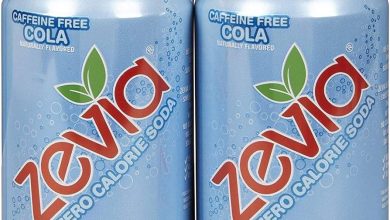Nutritional Profile and Ingredients Breakdown for Cheese Croissants
Cheese croissants are a delightful fusion of flaky pastry and creamy cheese, offering a perfect balance of indulgence and nourishment. Below is the comprehensive nutritional information for this savory treat, highlighting key vitamins, minerals, and macronutrient content.
Nutritional Information (per serving):
| Nutrient | Amount | Daily Value (%DV) |
|---|---|---|
| Energy (kcal) | 414.0 | — |
| Protein (g) | 9.2 | — |
| Total Fat (g) | 20.9 | — |
| Saturated Fat (g) | 10.628 | — |
| Carbohydrates (g) | 47.0 | — |
| Fiber (g) | 2.6 | — |
| Sugar (g) | 11.35 | — |
| Calcium (mg) | 53.0 | — |
| Iron (mg) | 2.15 | — |
| Magnesium (mg) | 24.0 | — |
| Phosphorus (mg) | 130.0 | — |
| Potassium (mg) | 132.0 | — |
| Sodium (mg) | 361.0 | — |
| Zinc (mg) | 0.94 | — |
| Copper (mcg) | 0.1 | — |
| Manganese (mg) | 0.34 | — |
| Selenium (mcg) | 26.8 | — |
| Vitamin C (mg) | 0.2 | — |
| Thiamin (mg) | 0.523 | — |
| Riboflavin (mg) | 0.325 | — |
| Niacin (mg) | 2.16 | — |
| Vitamin B6 (mg) | 0.073 | — |
| Folate (mcg) | 33.0 | — |
| Vitamin B12 (mcg) | 0.32 | — |
| Vitamin A (mcg) | 204.0 | — |
| Vitamin E (mg) | 1.44 | — |
| Vitamin D2 (mcg) | 0.0 | — |
Key Highlights:
- Rich in Energy: With 414 kcal per serving, cheese croissants are a source of substantial energy, making them ideal for a morning pick-me-up or a midday snack.
- High in Fats: They contain 20.9 grams of fat, with saturated fats contributing significantly, providing that rich, buttery flavor characteristic of croissants.
- Carbohydrates and Fiber: With 47 grams of carbohydrates and 2.6 grams of dietary fiber, they provide both immediate energy and moderate digestion benefits.
- Vitamins and Minerals: The croissants boast a variety of essential nutrients, including calcium (53 mg), phosphorus (130 mg), and potassium (132 mg), supporting bone health and overall well-being.
- Micronutrient Boost: A notable amount of selenium (26.8 mcg) aids antioxidant defenses, while B-vitamins like thiamin (0.523 mg) and riboflavin (0.325 mg) contribute to energy metabolism.
Allergen Information:
Cheese croissants contain potential allergens, including:
- Wheat (Gluten): Present in the flour used for the croissant dough.
- Dairy: Found in cheese and butter components.
- Eggs: May be used as a glaze or in the dough, depending on the recipe.
Individuals with sensitivities to these ingredients should consult alternative recipes or seek allergen-free versions.
Dietary Preferences:
- Vegetarian-Friendly: Cheese croissants are suitable for ovo-lacto vegetarians as they contain no meat or fish-derived ingredients.
- Not Vegan: Due to the inclusion of butter, cheese, and potentially eggs, these are not vegan-friendly.
Advice for Enjoyment:
- Pairing Suggestions: Serve warm with a cup of coffee, tea, or a side of fresh fruit for a complete breakfast or snack.
- Storage Tips: To maintain freshness, store in an airtight container for up to two days or freeze for longer shelf life. Reheat gently in an oven to restore crispness.
Conclusion:
Cheese croissants are a delightful indulgence, combining rich, buttery pastry with the savory depth of cheese. While they are high in calories and saturated fats, their nutritional profile includes a variety of beneficial vitamins and minerals. Enjoy them mindfully as part of a balanced diet to savor their flavor and satisfy your cravings!










